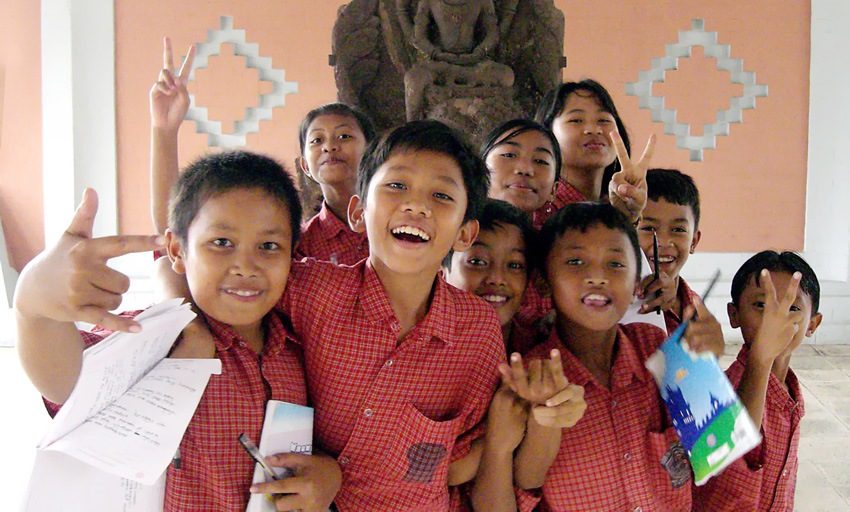The Millennium Challenge Corporation (MCC) have been applying a holistic approach to tackling Indonesia’s prevailing problem of stunted growth in young children. Amit Chandra, LSE International Development Alumni and Technology Policy Fellow for the MCC, tells us about his experience with the Community-Based Health and Nutrition to Reduce Stunting Project.
More than eight million children in Indonesia suffer from stunted growth. Stunting increases a child’s risk for infections, delayed brain development, and reduced academic achievement and earning potential, leading to a lifetime of missed opportunities. Chronic malnutrition is the primary cause of stunting in young children and is often due to several factors, including: poor maternal health during pregnancy, insufficient nutrient intake, frequent childhood illness, and inadequate sanitation and hygiene.
The Millennium Challenge Corporation (MCC), an independent U.S. Government agency working to reduce global poverty through economic growth around the world, is currently investing $134.2 million to reduce stunting in 11 of Indonesia’s 34 provinces by integrating sanitation, maternal and child health, and nutrition interventions. As a 2015-2017 American Association for the Advancement of Science (AAAS) Science and Technology Policy Fellow and Health Systems Advisor at MCC, my work with the Community-Based Health and Nutrition to Reduce Stunting Project supports this investment. The project provides grants to more than 5,400 Indonesian villages for health and education activities, including training for more than 18,000 health workers on maternal and infant nutrition, community-led sanitation programs, and a national communications campaign focused on improving child feeding practices.
On a recent field visit to the province of West Kalimantan, I saw first-hand how MCC’s investments are improving the frequency and quality of services offered during monthly village health days, or posyandu. In the remote village of Pahuman, nearly 50 children received immunizations, had their height and weight measured, and collected nutritious meals made from locally grown vegetables during their visit to the health post.
Behind every successful posyandu are the dedicated health workers who staff them. For example, midwives and health centre staff administer vaccines and provide counselling for families of at-risk children, while community health volunteers prepare meals, ensure posyandu attendance, and conduct follow-up visits.
Together with the Indonesian Government and its implementing partners, MCC’s work has already led to an improvement in national guidelines on child growth monitoring and infant and young child feeding in Indonesia, which will continue to benefit children across the country long after MCC’s project is completed in 2018. Over the coming years, MCC will share the lessons learned from an in-depth independent evaluation of the nutrition program with Indonesia’s Ministry of Health. These results will inform future nutrition initiatives in Indonesia and around the world, helping more children grow to reach their full potential.
Amit Chandra is an emergency physician and a 2015-2017 AAAS Science and Technology Policy Fellow serving as a health systems strengthening advisor for the Millennium Challenge Corporation.
This article was first posted on the MCC Blog.
The views expressed in this post are those of the author and in no way reflect those of the International Development LSE blog or the London School of Economics and Political Science.






